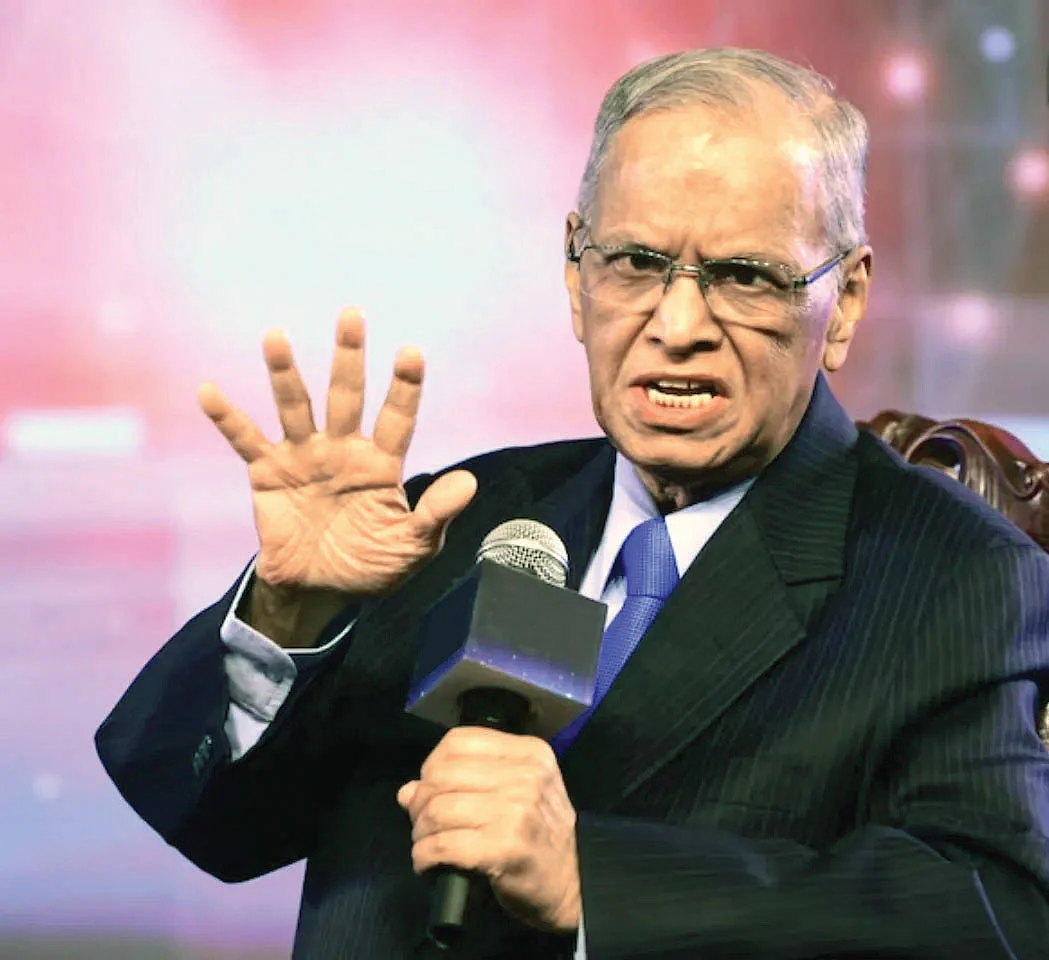Workers make it and CEOs take it
Is it ‘foot-in-mouth’ disease or is something genuinely rotten in the state of India Incorporated, asks Lekha Rattanani

The 60-year-old L&T chairman and managing director (CMD) S.N. Subrahmanyan, or SNS as he is known within the company, has ignited quite a firestorm. He is not known to be one of those headline-seeking CEOs living the high life that we all might love to hate. He chairs a conglomerate with a venerable history of 80-odd years, with more than 50,000 people operating across 50 countries and an annual turnover of over Rs. 2.2 lakh crore in 2024.
It is almost unbelievable that such a senior leader would make the kind of remarks he has. If he had his way, he said in an (undated) video that was leaked, he would make employees work on Sundays since the only other option would be to sit at home and stare at your wife. If you think of all the women who are a proud part of the L&T success story, SNS came across very poorly in more ways than one.
Deepika Padukone was right in pointing out that his attempted recovery from this sorry mess only made it worse. Instead of making light of his remarks, which included a prescription of putting in 90 hours a week, the retrospective attempt to explain it away as a call to nation-building points to the insidious intent of his remarks. Was he serious? Or was he attempting to outdo N.R. Narayana Murthy’s outrageous call for a 70-hour work week, which the Centre of Indian Trade Unions called ‘satanic’?
L&T’s justification only makes it more likely that people will not see it as harmless banter that misfired.
If we doubt and allow for the view that he is known for these kinds of ‘detours’ and didn’t really mean it, the larger issue that comes to light is what CEOs in India can get away with.
The cases that grab attention now and then offer but a tiny peek into what’s wrong with India Inc. Is SNS’s vision the way “India’s Yuva Shakti will make India a developed nation”, to quote from Prime Minister Narendra Modi’s speech at the ‘Viksit Bharat Young Leaders Dialogue 2025’ on National Youth Day (12 January)?
The CEOs of the day may want their political leaders to think they are singing the same tune, but the youth of the day, which includes GenZ employees, don’t care to conceal their disdain for the likes of Murthy and SNS.
Who will measure and factor in this growing variable of rightful employee wrath? Who will hear and take them seriously enough to make a difference to India’s work-life balance (or the lack of it)? Not just SNS, all such corporate heads should be held accountable and, when required, restrained by strong regulatory measures.
Consider that SNS was paid a total remuneration of Rs 51.05 crore for FY 2023–24, which is 534.57 times the median remuneration at L&T. It represents an increase of 43.11 per cent over what was paid to him the previous year. He had the highest take-home in the company, some 40 per cent higher than the second-highest paid employee — president & CFO R. Shankar Raman. How are L&T’s employees, paid a pittance in comparison, expected to react to their head honcho’s comments?

In this context, the first issue on the agenda for a truly ‘viksit Bharat’ (developed India) should be putting a ceiling on the amount that CXOs (chief experience officers, as they are now called) pay themselves. The formal excuse that they don’t decide their salaries, the board does, is just that — a formality. In the Indian context, these guardrails have not worked well enough.
Partly because company boards are often agreeably pliant, working as birds of a feather flocking together to keep their nests comfortably lined, and their posts safely entrenched. It is important to note that in truly developed Denmark — home country of the L&T founders, the late Henning Holck-Larsen and Soren Toubro — the variable remuneration of executive directors comprises on average 37 per cent of the fixed, according to a Deloitte report.
In the case of India’s L&T CMD Subrahmanyan, that average is 980 per cent (a salary of Rs 3.6 crore, a commission of Rs 35.28 crore, as reported by L&T for 2024).
Without grudging these packages, can it be fairly claimed that the group’s performance — the basis on which commission is usually calculated — is thanks to leadership provided? And how will L&T calculate the losses incurred on account of SNS’s remarks, given that many talented candidates will now think twice about joining the company?
The next significant question that comes up is the complete absence of dissent in India’s corporates. The language of sustainability, the appeal to innovativeness and the claim of DEI (diversity, equity and inclusion) policies ring hollow when it becomes clear that no one in Indian corporations — including those we consider the biggest and the best — challenges the boss. Why? The answer is simple: questions are not asked because questions are not encouraged.

This builds a culture where hierarchy rules, the boss is always right, and creativity cannot thrive. (To be fair, this culture of fearful obedience over fruitful disagreement begins in school.)
The internal collapse of L&T can be gleaned from the fact that no one challenged SNS in the video that has now become the cause of his misery and social media hilarity. The memes and gags should remind ‘SNS’ and Narayana Murthy how many zeroes there are in their salaries. The problem is not that the video was leaked. The problem is that SNS was not asked how he could even make such a statement.
As our CEOs often do, in that moment, he got away. It took the world outside the corporation to call him out and pull him down. For India to harness the power of a new generation of thinking leaders, the older lot will have to learn to live with more questions and less judgement. They need to introspect and acknowledge that they may not be quite as extraordinary as they might imagine themselves to be.
Since there is no evidence to suggest that such a transformation is likely to happen any time soon, the Indian establishment must act with a new set of regulations to put its house in order.
Follow us on: Facebook, Twitter, Google News, Instagram
Join our official telegram channel (@nationalherald) and stay updated with the latest headlines
